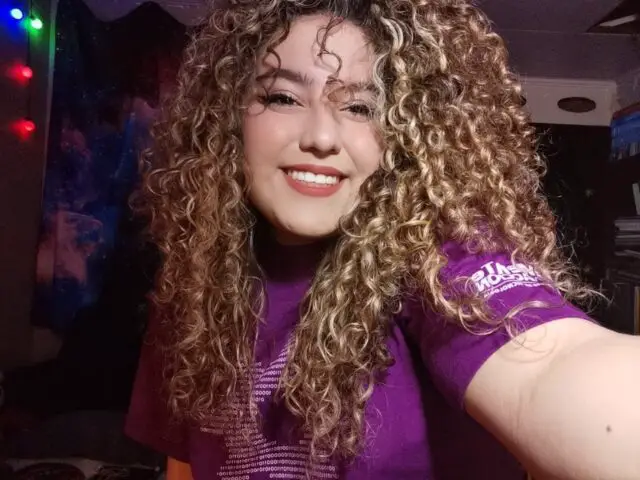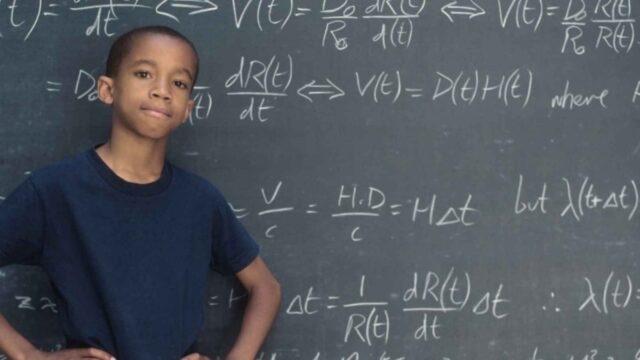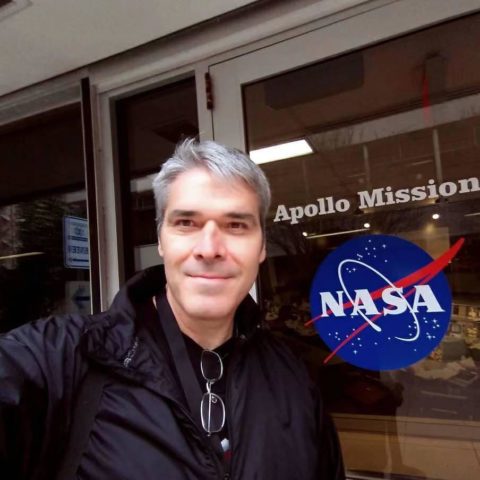| In the words of renowned scientist and the co-founder of string field theory Michio Kaku: “First of all, we are all born scientists. When we’re born, we wonder where we came from. We wonder why the stars shine. We wonder why the sun comes out in the morning. We’re born scientists. And then one day, we get the greatest destroyer of scientists known to science. What is the greatest destroyer of scientists? And that is junior high school. Think about it. In junior high school, that’s when science is reduced to memorization, memorization of things that are totally irrelevant. Memorize the parts of a flower.” My guest blogger today is 21-year-old Costa Rican Fernanda Guerrero. Fernanda was diagnosed with a super intellectual endowment. Fernanda is currently studying medicine and surgery at the Universidad Autónoma de Centroamérica and in her spare time, she is self-teaching herself aerospace medicine and neurosciences. Fernanda is the current president of the Costa Rican chapter of the Society for Women in Space Exploration ( SWISE). Her upcoming projects include research on how human beings can adapt to other planetary atmospheres with the use of a few devices as possible. In a 2017 study published in the journal Intelligence, Pitzer College researcher Ruth Karpinski discovered that people with the highest IQ levels were more likely to suffer from a range of serious disorders including depression, anxiety disorders, attention-deficit hyperactivity disorder, and autism. In her blog, Fernanda describes the challenges she has faced and offers important advice to educators on the need to detect and support these gifted people. |

Hi! I’m Fernanda Guerrero, and I’m very grateful for the opportunity to be able to talk about something that is extremely important and a taboo: super intellectual endowment.
I was diagnosed at exactly 20 years of age (an extremely late diagnosis), and in those past years, life used to be very confusing to me: the people around me did not understand me, I never managed to adapt to any schools and high schools. I studied, and the teachers always seemed to have something against me. The problem was not me, but that people outside did not understand me, and as I have always said, the educational system is not inclusive, since it leaves aside people with high intelligence.
A person with intellectual endowment is one with an IQ +130, and that gives them the ability to learn, memorize and understand much more easily than the average. However, the super gifted are also people with hyper emotional and sensory sensitivity, and without the right help we can have serious problems in the course of our lives, from psychological, drug addictions, and in many cases, suicide.
Why is the diagnosis of people with Super Intellectual Endowment important?
People who are never diagnosed, or who are diagnosed and do not follow up properly, may develop the following:
● Depression. People with Super Intellectual Endowment often develop depression because they feel that no one around them understands them, that they have no support, that they are strange in a world that doesn’t care about them, and does not have the tools to help them. This includes suicide attempts, since, in an attempt to escape from a society that excludes them, losing one’s life seems to be the best option, which of course, it is not.
● Anxiety. The high demands, both from others and on ourselves, that high expectation of just being a person with a higher than usual IQ, can cause us high levels of stress. We are smarter, but we are not Super Men or X-Men! Many expect us not to make mistakes, and when we do make mistakes, it feels like a fatal thing.
● Drug addiction: in an attempt to escape from reality, from hypersensitivity, from not fulfilling dreams and expectations about ourselves or imposed by others, the super gifted tend to fall into drug addictions in order to let our brain stop, even for a moment. We process information faster than everyone else, our understanding is greater, and that can be a double-edged sword, because as we think faster, the anxiety we experience has such a fast flow of thoughts, that it is impossible to stop. That’s why if they do not receive the right support, they consider numbing the consciousness to be the best option.
● Low self-esteem: Many of us (even from my own experience) have experienced the phenomenon of school failure: classes bore us because we already know what they are talking about because there are more interesting and important subjects that make us stop and do not allow us to pay attention. I remember that when I went to school, I always carried a book with me, especially one on Quantum Physics that I love, and I preferred to read that than to listen in Spanish classes about “sentence syntax.” What was the point of learning that? Was it important to recognize what kind of sentence it was in a conversation? Not at all.

Oh, and let’s talk about physics classes: “Teacher, could you explain to me about Einstein’s theory of general relativity”, I asked my teacher. She laughed and said: “Even I don’t understand it, much less you will.”
I did understand, but I wanted to talk about the theory with someone.
Bullying for being strange leads to social isolation. When teachers scold us when we ask questions, and even treat us as if we were fools because their classes really don’t matter to us. What good is it to learn many unnecessary things that only take up space in our minds that can be used for more valuable things? That’s what we, gifted people think, consciously or unconsciously.
I remember very well that my female schoolmates (at that time it was an all-female school) always considered me to be intelligent, and someone who knew about many subjects. Once in math class, a classmate asked me about Buddhism, since she was going on a trip to Thailand. My teacher, a bad-tempered and mocking woman, hit my desk hard and yelled at me in front of all my classmates: “Fernanda, don’t you realize the level of attention deficit you have!” As if attention deficit was a bad thing. As if it was a bad thing that I answered a question in class that I was asked, a question to which she probably wouldn’t have an answer.
That often happens a lot, and the ignorance of teachers and the deficit of the educational system damages our self-esteem and causes depression and anxiety, not to mention misdiagnosis, where we are told that we have autism, OCD, mental retardation, and in my case, attention deficit.

Luckily for me, I now have the help of a wide range of specialists in super intellectual endowment, who have rebuilt my self-esteem, and given me the tools to live in a world where we are excluded. I have thousands of testimonials that I am happy to tell, but the most important lesson of all is this: the education system must be prepared! They are teaching a dead science, they are wasting incredible minds that end up isolated by fear, the uncertainty of whether today that teacher will mistreat me, or that classmate will harass me again.
As the physicist, Michio Kaku said: the school kills the geniuses.
Dear educational system: Prepare your teachers to detect children with high endowments. Create safe spaces where we are motivated, where you can teach us everything, from topics that we are passionate about, and give us the psychological support to cope.
Among us are the keys to move the world forward, but very few have the privilege of having the necessary help: psychological therapy is expensive, as are diagnostic tests. Not everyone has access to books, or they live too far from a library. There are super gifted people with wealthy families who provide all the help, while others live from day to day and their minds are wasted, because teachers cannot detect them in their public school, and they ignore them and scold them.
In my personal history, teachers have been my greatest obstacles, from school to college, and the story recently repeated itself with the start of university.
Please, super gifted readers, do not lose hope! Let’s keep our eyes on the stars.

Bruce Callow is a Canadian teacher and co-author of the book To the Stars: Costa Rica in NASA. He does space education outreach work on behalf of NASA.


